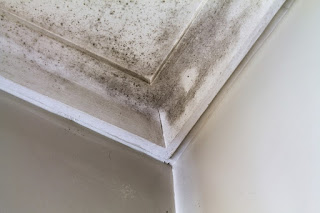A moist environment can lead to mold growth in the home, potentially resulting in costly property damage and health concerns for residents. When humidity levels are high, as they sometimes are in the New England region, mold can begin to multiply within 48 hours. Fortunately, these five simple steps can help area homeowners reduce moisture in their homes and limit opportunities for mildew and mold spores to spread.
Use a Dehumidifier With a Humidistat
Ideally, indoor humidity should fall between 40 and 60 percent relative humidity (RH), so it's useful to have a humidistat to verify that the air levels in your home are within the recommended window. An RH level above 70 percent provides optimal conditions for mold growth, and using a dehumidifier is the easiest way to reduce high humidity levels in the home.
Ventilate Well
This may sound like a basic step, but it really is crucial to keep your home well-ventilated by opening windows and running vent fans whenever possible. This is especially important in rooms such as the kitchen and bathroom, common culprits when it comes to mold growth. When using the air conditioner—a tactic that can also reduce moisture—ensure the fan is on to improve ventilation throughout the house.
Consider Making Minor Lifestyle Changes
Even when the dryer is vented to the outdoors, using it excessively can increase home moisture levels. In nice weather, hang clothes outside to dry. Don't use an indoor clothesline, since wet clothes also add moisture to the air. Avoid long, hot showers, as they create steam that increases humidity. Take cooler or shorter showers instead, especially in hot weather.
Service the HVAC
Replacing air filters in the air conditioner and furnace, as recommended by the manufacturer, will maximize the airflow offered by these systems. When air is blocked, the chances of mold development and growth will only increase.
Seal Air Leaks
Homes that are drafty are more susceptible to high moisture levels. If air is leaking from windows, ducts, or doors, sealing these areas can help lower moisture in the air and improve energy efficiency. Replacing old windows with Energy Star-rated models also makes a big difference.
In the Dorchester area, ASAP Environmental, Inc. offers
mold inspections to homeowners who are concerned about the presence of mold in their home.
Our qualified technicians analyze the quality of the indoor air and perform other diagnostic tests that even detect invisible mold, allowing remediation of small issues before they get worse. Call us at 800-349-7779 to receive a free estimate or fill out our form to
schedule an inspection.

No comments:
Post a Comment